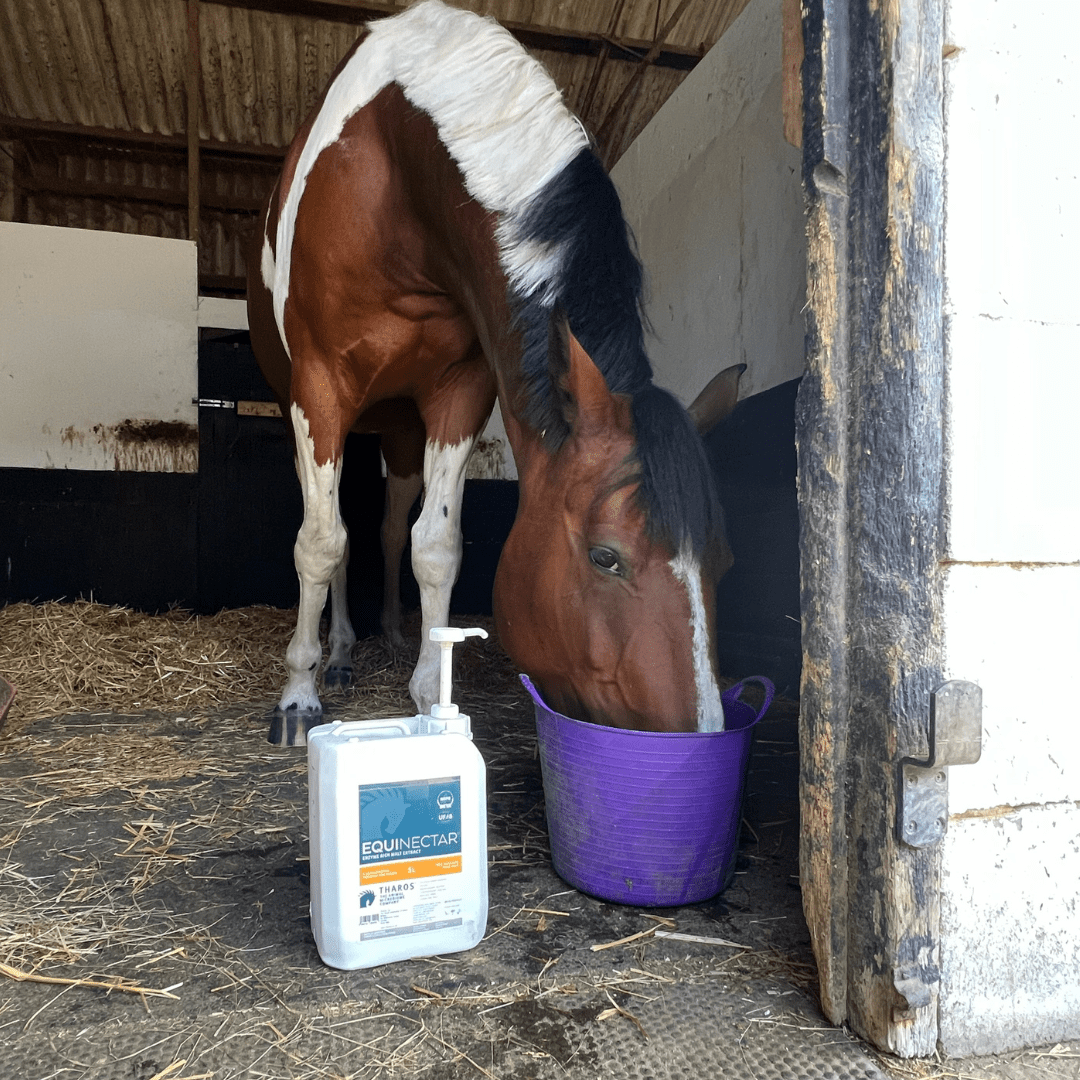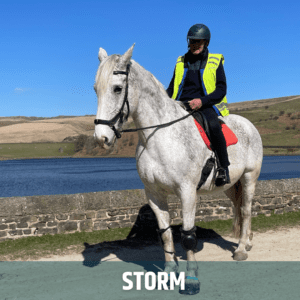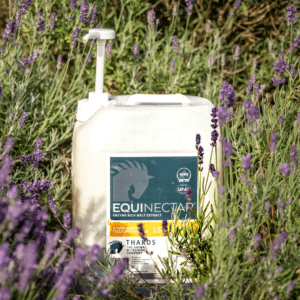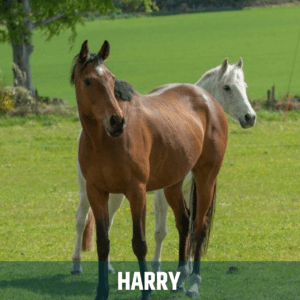01
Introduction
The British climate is nothing if not unpredictable. After a notably wet summer that saw equestrians managing the challenges of abundant, rich pastures, the sudden heatwave in September presents another issue: dehydration. The rapid transition from damp to dry, from chill to warmth, has a particular impact on a horse’s digestive system.
02
From Waterlogged to Water-Deprived
- Overconsumption of Lush Grass: A wet summer means grassy pastures thrive. Horses may consume water indirectly through this lush grass. As the weather turns hot, the moisture content in the grass can drop suddenly, making it essential for horses to find their hydration elsewhere.
- False Security: With water so prevalent during the wet months, both horse and owner might be lulled into a sense of complacency. Horses can become used to extracting a significant amount of their daily water intake from the wet grass, which means when the heat arrives, they might not instinctively drink as much as they should.
02
Dehydration’s Impact on Digestion
- Digestive Efficiency: Water is pivotal in breaking down food, aiding in nutrient absorption, and facilitating food movement along the digestive tract. Reduced water content, due to dehydration, can impair these functions [1].
- Gut Motility: As mentioned earlier, the loss of electrolytes through sweat, particularly sodium, potassium, and chloride, can influence the rhythmic contractions of the intestines, affecting food movement through the digestive system [2].
- Dry Forage Digestibility: The sudden heat can dry out the previously lush pastures, making the grass more fibrous and harder to digest. Without adequate water intake, this can compound the risk of digestive blockages.
AN OWNER'S UNIQUE WAY TO ENCOURAGE HER HORSE TO DRINK
"A tip for encouraging drinking away from home - SpeediBeet with lots of water and some EquiNectar.
He will do anything for some EquiNectar so I added some to some beet to see what he thought - huge hit!
He doesn’t usually take anything on board when out so really pleased to have found something he likes - even if it is all over the car park too!
Another day at home, we tried one squirt of EquiNectar in a half bucket of water and as you can see, he loved it."
Clare, horse owner
from the Feeding Horses with Ulcers group on Facebook
03
How to Counteract the Risks
- Constant Access to Fresh Water: With the sudden change in weather, ensuring horses have access to clean, fresh water is crucial [3]. Monitoring and possibly increasing water supplies can encourage more drinking.
- Electrolyte Balance: Consider adding electrolytes if horses are sweating more than usual, to help replace lost salts and maintain gut motility.
- Awareness: Just as equestrians adjusted routines during the wet months, it’s essential to be vigilant now. Regularly check horses for signs of dehydration such as dark urine, dry gums, and reduced skin elasticity.
In summary, while the UK's erratic weather may keep horse owners adapting their care routines, awareness of the risks and proactive management can ensure that even sudden heatwaves won't compromise equine health and digestion.
References
[1]: American Association of Equine Practitioners. "Colic: Minimizing its Incidence and Impact in Your Horse."
[2]: National Research Council. "Water and Electrolytes." In Nutrient Requirements of Horses: Sixth Revised Edition.
[3]: University of Minnesota Extension. "Colic in your horse"
ABOUT EQUINECTAR
Description
EquiNectar® is a natural feed supplement, that is scientifically proven to:
- Re-balance your horse’s gut bacteria
- Help your horse maximise benefits from its feed
- Improve your horse’s condition
More information
EquiNectar® is produced by Tharos Ltd in the UK. It is a natural source of digestive enzymes and contains only the following ingredients:
- Our patented enzyme rich malt extract
- Medium chain triglycerides (from coconut oil)
- Potassium sorbate
For more details of the enzymes within EquiNectar® take a look at the ingredients and enzymes page.
How to feed
Simply add EquiNectar® to your horse's daily feed, using the Feeding Rate chart to determine the correct amount.
For detailed instructions about how to introduce EquiNectar, please read the comprehensive Feeding Guide page.






